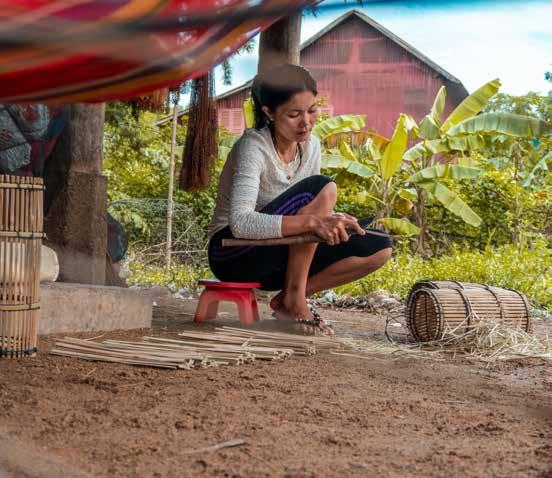
2 minute read
Water Matters in Emergency Relief
Access to clean water is essential in the aftermath of a natural disaster — a time in which minimum basic water needs double, according to the World Health Organization. Not only is clean water crucial in meeting the basic daily food and hydration needs that continue in the face of a disaster, but it is also critical in preventing the spread of disease.
When critical infrastructure like power and roads are wiped out, providing clean water directly to communities is a top priority. To prevent the undue suffering that dirty water can impose in the wake of a disaster, WHI works to ensure an adequate supply of clean, potable water for communities as they work to recover and find relief.
Advertisement
In 2018, WHI trained 80 volunteers to serve on our Fresh Water Production Teams. Thanks to the dedication of our volunteers and with support from our valued partners, WHI is now equipped with the manpower, skills, and equipment to mobilize and manage water filtration and distribution systems within 24 hours of a disaster striking virtually anywhere on the globe. Among these volunteers was James Penney, a Canadian volunteer who participated in our Fresh Water teams training in Halifax, Nova Scotia this past August. Shortly after his training, James had the chance to see the true power of what fresh water can do, when Typhoon Mangkhut struck the Philippines in September.
A Category 5 storm, Typhoon Mangkhut struck with force, killing 125 people and damaging upwards of 200,000 homes. Much of the damage from the storm took
To weather the storm, the Agay community of Calasitan gathered together in the local primary school, emerging days later to find all but two houses destroyed and their entire harvest of crops and food staples lost. With the next harvest season not until March, a loss of crops meant incomes were wiped out, while the risk of getting sick from contaminated water swiftly rose.
Thankfully, WHI was ready to respond. In the immediate days and weeks following the storm, WHI staff and Fresh Water volunteers traveled more than 22 hours by land to deliver food packs, portable water filters, medical kits, and solar chargers to the Agay community.
“I had an amazing experience in the Philippines with World Hope! The team worked together flawlessly. Our mission distributing life-saving filters and supplies went perfectly! It was quite an adventure. Thank you so much for the Fresh Water Team training in Nova Scotia earlier this year.”
—James Penney, Fresh Water Production
Teams volunteer place in the Cagayan Valley region on the island of Luzon, where the storm made initial landfall. The area is home to the indigenous Agay tribe, with whom WHI has been working alongside The Wesleyan Church since 2015, supporting sustainable agricultural practices in the face of deforestation and resulting food insecurities.
Together with our partner Katadyn USA, WHI’s Fresh Water team distributed over 400 water filters alongside a 40-foot container of food. Today, we’re working to design disaster risk reduction strategies to help the community be more resilient against natural disasters in the both immediate and long terms.









